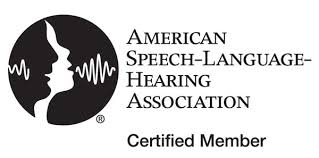
To use in your report, highlight text first then:
COPY
WINDOWS: Ctrl + C
MAC: Command + C
PASTE with no Formatting
WINDOWS: Ctrl + Shift + V
MAC: Shift + Option + Command + V
PASTE with Formatting
WINDOWS: Ctrl + V
MAC: Command + V
**Use for templates with tables**
Evaluating Acquired Skills in Communication (EASIC-3)
The Evaluating Acquired Skills in Communication-Third Edition (EASIC-3) is a measure of communication and language skills in young students who have possible developmental delays, autism, severe to moderate cognitive delays or language delays and/or cognitive disorders. It provides assessment items in the areas of pre-linguistic skills, semantics, syntax, morphology, and pragmatics.
Pre-Language Inventory: assesses skills that emerge prior to meaningful speech, many of which are related to sensory skills. Most of these items assess skills that normally develop between birth and 24 months of age.
Receptive I Inventory: assesses initial emerging comprehension skills including comprehending simple noun labels, basic verbs, simple locations and prepositional commands, primary adjectives and attributes and basic questions. Most of these items assess skills that normally develop between 12 and 48 months of age.
Expressive I Inventory: assesses initial emerging expressive skills. It is appropriate for students who have emerging modes of communication such as comprehending simple noun labels, basic verbs, simple location indicators, and primary sentence structure. Expressions might be made via verbalizations, signs, picture systems, or other alternative means. Most of these items assess skills that normally develop between 12 and 48 months of age.
Receptive II Inventory: assesses more complex comprehension of semantic, morphologic, syntactic, and pragmatic functions. Most of these items assess skills that normally develop between 24 and 60 months of age.
Expressive II Inventory: assesses more complex expression of semantic, morphologic, syntactic, and pragmatic functions. Most of these items assess skills that normally develop between 24 and 60 months of age.





